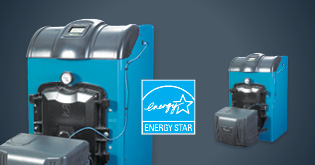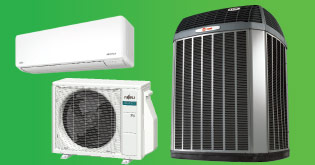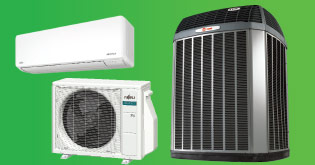- My Account:
- Sign In
- Register
- Make Payment
Sales 877.359.8781
Service 914.769.5050
Sales 877.359.8781
Service 914.769.5050

The difference between a furnace and a boiler.
Your heating system is one of the most important items of equipment in your home. But if your heating system is a boiler, there are marked differences between it and a furnace. You can use the following list to help determine the important differences between the two and learn more about your heating system.
 Furnaces
Furnaces
- Heat your home using warm air circulated through ductwork.
- Natural gas, propane or electricity are used to power furnaces.
- Beyond an annual inspection by a certified technician, who should check for risks of natural gas leaks or carbon monoxide poisoning, air filters should be changed quarterly or monthly.
- Cost less, take less time to install than a boiler and have less chance of freezing in cold weather
- Potentially create a drafty environment, run the risk of valve leaks and may create issues for those suffering with allergies.
Boilers
- Heat your home using hot water, or steam from it, which is pumped throughout your home via radiant flooring systems or radiators.
- Natural gas, oil electricity or sometimes wood pellets are used to power boilers.
- Beyond an annual tune-up by a certified technician, who should check for risks of natural gas leaks or carbon monoxide poisoning, not much maintenance is required.
- Quieter than furnaces, are more energy-efficient, provide better home air quality, require no ductwork and any water heated by boilers can be reused.
- Usually are more expensive than furnaces and damage from any leaks can also be costly to repair.
Need a new boiler or furnace? Or have more questions? You can rely on our team of local heating and home service experts for all your heating system installation and repair needs.






.jpg?sfvrsn=8bd8912d_3)